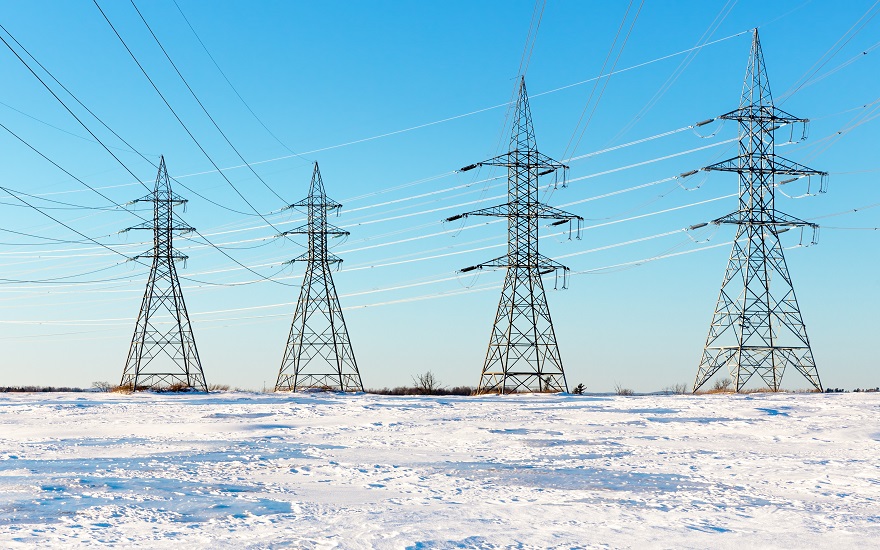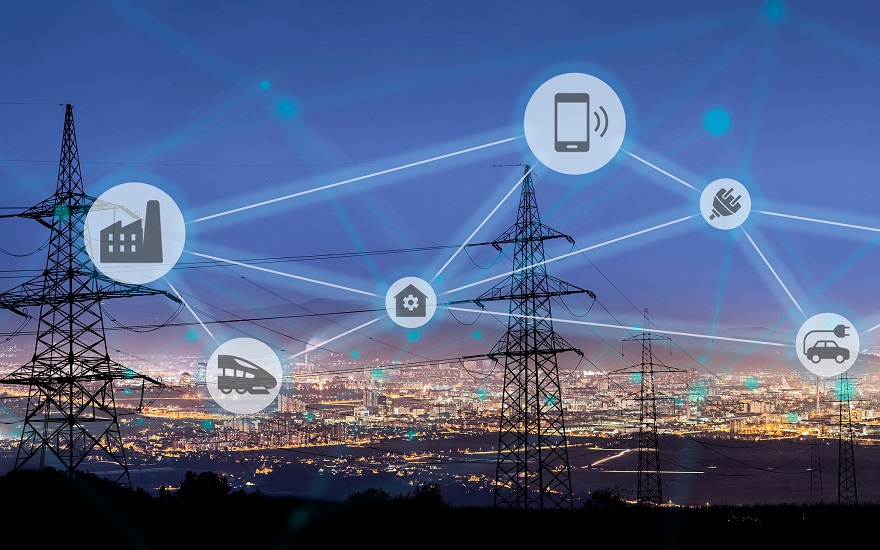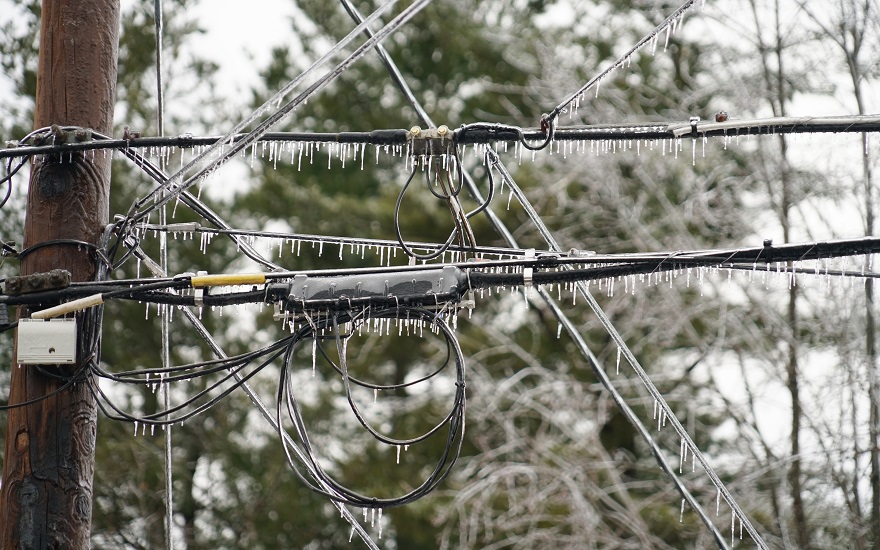How would you cope in a world without power? Let’s explore the catastrophic consequences a nationwide blackout could cause.
Think how different your life would be if you had to live without electricity for a few hours or even days. No internet. No mobile phones. No contactless payments. No television. No planes and trains, or traffic lights on the road.
Society as we know it would quickly descend into chaos. Order would give way to anarchy as panic grows.
Picture the scenes here in the UK when we get even a slight covering of snow – stockpiling shoppers stripping the shelves of essentials such as bread and milk.
If we’re without power for any prolonged period of time, the fear would be off the scale!
Perhaps the closest the country has come is the Three Day Week of 1974, where electricity supplies were restricted during an ongoing dispute between the government and coal miners.
“Four Meals From Anarchy”
Security service MI5 has a famous saying that Britain is only ever “four meals away from anarchy”. This is because the prospect of disruption to the nation’s supply of food would lead to widespread rioting and looting.
During a blackout, food in fridges or freezers would quickly go off. Shops and supermarkets would either be stripped bare of all supplies or off limits because their tills and payment systems are offline.
In the world of business, the impact would be just as acute. Emails and the internet-based systems dominating our working lives will fail, followed by the entire mobile phone network.
All those things we take for granted in our office blocks, factories and warehouses like lifts, heating, air conditioning and electronic access systems will stop working.
Even well-prepared large organisations with backup generators and emergency power supplies will quickly become isolated and unable to maintain full operations as the infrastructure and supply chains around them disintegrate.
Communications networks will be down, transport gridlocked, and workers either unwilling or unable to get into work as the disruption and panic spreads.
Every second a business is disrupted during a blackout, it is losing potential income, it’s losing the ability to communicate with customers and suppliers, and it’s potentially losing critical infrastructure and data.
Lord Arbuthnot of Edrom, former chair of the House of Commons Defence Select Committee and an advisor to the Electric Infrastructure Security Council, summed things up when he said:
“Without electricity, modern life would grind to a halt and the complexity of modern society is such that if you take out one or two little pieces of the jigsaw, the whole thing collapses.”

Far-Reaching Impact Of A Blackout On Day-To-Day Life
A nationwide power failure would have a far-reaching impact across virtually every aspect of typical day-to-day life.
Our sophisticated telecommunications networks will quickly become almost useless:
- Mobile phones can only make calls, with data needed to access the internet, apps and emails off-limits
- Mobile network coverage likely to last only one or two hours
- Old-style plug-in landlines (i.e. the core telephone network) will keep working for up to five days. BUT… How many people have replaced the handset with cordless versions which rely on electricity to work?
- Without GPS satellite signals, practically all TV and radio broadcasts will go off air
- The BBC can offer limited updates on FM frequencies. However, only car radios or battery-powered transistors can pick up the signal

Transport systems will be gridlocked:
- Rail, tram and airport networks go down, leaving commuters stranded
- Diesel-powered buses can operate as long as fuel supplies last. But electric or hydrogen-powered vehicles will stop running
- Traffic light failures turn the road network into a dangerous free-for-all
- Majority of petrol forecourts will be off-limits as they need electricity for the pumps to run
- Fuel supplies will run out due to disruption in the distribution and supply chain networks
Public health and safety will be compromised:
- First point of call services (i.e. GP surgeries, pharmacies, 111 hotlines) offline so A&E departments inundated with worried residents
- Devices used to care for frail and sick (i.e. stairlifts, dialysis machines) can’t work without electricity
- Healthy patients can’t be discharged as there’s no public transport to get them home
- Health services reduced to critical care and inpatient nursing
- All elective surgeries and outpatient appointments cancelled
- Huge disruption to medical supply chains (i.e. blood and organ transplants, catering)
- Acute staff shortages caused by ongoing transport difficulties and school closures
- Increased risk of infectious disease outbreaks caused by poor sanitation and lack of clean water
- Deaths are inevitable, but how will all the dead bodies be moved, stored and disposed of?

Domestic and household life will be intolerable:
- Immediate and ongoing loss of heating, lighting and cooking
- Many gas-fired heaters and cookers rely on electrical pumps or controls to work
- Lack of mains tap water
- Toilets can’t flush as they too rely on electric-powered pumps
- Perishable food in fridges and freezers will spoil in approximately 30 hours
- Updates limited to people with battery-powered FM radios
- No communications, apart from homes with old-style fixed connection landlines and corded plug-in handsets
- Stockpiling and panic buying often turns to violence
Businesses and the economy will be crippled:
- Electronic payment systems (i.e. tills, card readers, point of sale) are offline
- ATMs likely to quickly run out of cash
- Online banking and other financial service systems will crash
- Many buildings will close due to health and safety issues
- Deliveries to shops, supermarkets and other destinations will stop as fuel supplies run dry
- Unplanned staff absence caused by school closures, transport disruption and general panic. Most continuity plans assume a critical mass of staff will always be available, but in the worst situations people will invariably put themselves and their families first

Police and other emergency services will be overwhelmed:
- Trapped people will require rescuing from underground railways or high-rise buildings
- Criminal Justice System disrupted as prisons, courts and probation services grind to a halt
- Rising public disorder and looting as supplies run low
- High-risk offenders at risk of absconding when electronic tags stop working without GPS signal
- Automated security and fire alarms systems trigger at the exact same time when the power drops, leaving fire and rescue helpless to determine which are the legitimate emergencies
- Staffing in rural prisons becomes critical
- Already-stretched resources needed to patrol power lines to prevent thieves stealing metal from circuits
- Although the special airwave communications network used by the emergency services is resilient for several days, batteries will require regular replacement for it to work
Environmental damage will be inevitable:
- Water treatment and sewage systems stop functioning, causing sanitation issues and a shortage of clean drinking water
- Water treatment works like chlorination plants that depend on electricity can only operate for a maximum of six hours without power
- Milk collection from the country’s 14,000-plus dairy farms would become impossible, meaning millions of litres of milk poured away across agricultural land
Timeline Of A Blackout
| Timeframe | Potential Impact On Services |
| 0 hours | Services with backup generators & uninterruptible power supplies will continue Closure of all other services (i.e. financial & educational) |
| 0-2 hours | Increased demand on public services (i.e. health & social care) Closure of transport networks |
| 2-6 hours | Mobile phone network likely to collapse after roughly two hours Public unable to communicate. BBC Radio 1-4 provides limited broadcast updates, but how many people have battery-powered radios or would think of using their car radio to listen? |
| 6-12 hours | Severe staff absence begins due to transport disruption & school closures |
| 12-48 hours | Water supply failure (some water treatment works can only last for six hours without electricity) Food in fridges & freezers will start to go off |
| 2-7 days | The core fixed telecoms network is likely to fail after five days Batteries will need changing on the Airwave network (the special mobile comms network used by emergency services) Potential public disorder |




